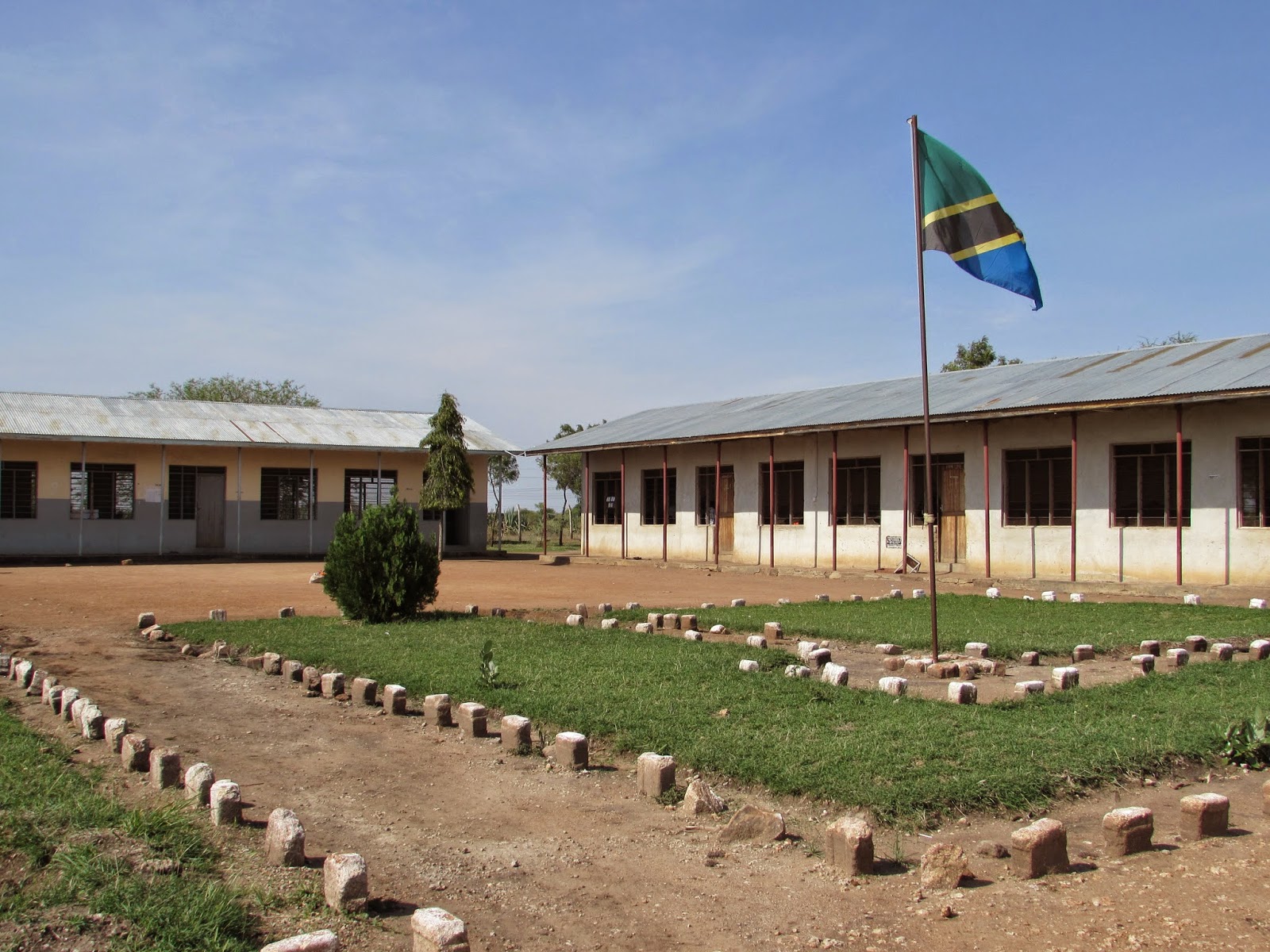Shinyanga was hit by a huge storm on Saturday night, thunder and lightning like nothing we'd ever experienced, although we've since been told that it wasn't anything special and that there's a lot worse to come!
Woke up on Sunday morning to a unexpected sight from our kitchen window - the house next door. Turns out the particularly loud thunder we heard at one point was the wall between us and our neighbours being blown over. Thankfully no one was hurt but it did hit the wall of the other house and cause some damage. See before and after photos below.
The owner of the house has been great and there's now a construction team working on the re-build. Apparently they couldn't get hold of any pre-made breeze blocks so are making hundreds by hand, one at a time. We also have no water at the moment so they have to walk and get water to mix the concrete. Really is a slow and painful process in some serious heat. Think a lack of foundations may have contributed to the original collapse so will be interesting to see if that's rectified this time.
It did give us a good opportunity to meet our neighbours who are very friendly and may even supply us with a few eggs, every Tanzanian cloud...











